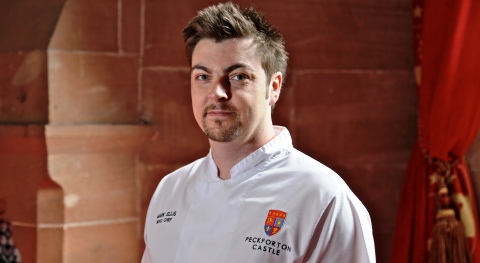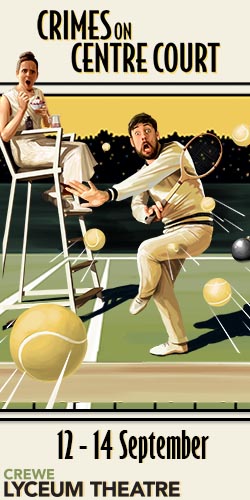
The head chef at a Nantwich attraction will compete in the North West heat of the BBC’s “Great British Menu”.
Mark Ellis, who works at Peckforton Castle, has been chosen as one of the three finalists for the North West heat.
He will be among 24 of the nation’s top chefs to produce 21st century dishes worthy of our war heroes.
Now in its ninth series, competitors on the new series of Great British Menu will fight it out for the chance to cook at a glorious banquet marking the 70th anniversary of D Day at London’s St Paul’s Cathedral.
They will be serving guests including those who fought on June 6, 1944, itself as well as others who served on both the frontline and the home front.
Their creations must evoke the wartime spirit of the generation, the bravery shown throughout the Second World War and, of course, taste delicious too!
Mark said: “I’m honoured to be classed among some of the best chefs in the country and it’s great to be able to have the opportunity to showcase the castle’s food to a national audience.
“I became interested in cooking while still at school and after studying food at college I worked myself up from Commis Chef to Sous Chef. I haven’t left the kitchen since!”
Chris Naylor, managing director of Peckforton Castle, said: “We are so proud of Mark and see his passion and skill with food on a daily basis.
“He has led our 1851 Restaurant to gain 3 AA Rosettes and continues to impress us with his innovation and love of local produce.
“Peckforton Castle will be supporting him all the way and have our fingers crossed for his success.”
Starting at 7.30pm on Monday April 7 on BBC2, Great British Menu: The D Day Banquet will run every weekday for nine weeks with the final “banquet” programme broadcast on June 6 – the 70th anniversary of D Day.





















Recent Comments